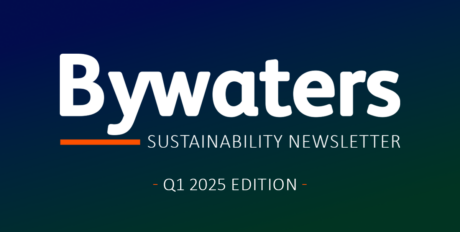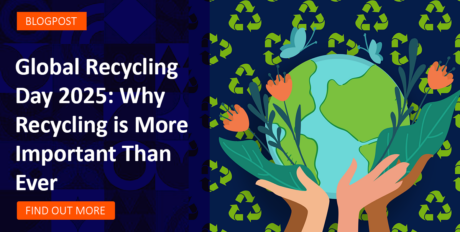Contact us today for your Free Quote
As the world gears up for UEFA Euro 2024, starting on June 14th, it’s an opportune moment to discuss the crucial role of waste management in sports. This major event, hosted in Germany, is not just about football; it’s also setting new benchmarks for sustainability in large-scale sporting events.
The Environmental Impact of Major Sporting Events
Large sporting events generate significant amounts of waste. From single-use plastics to leftover food, the environmental footprint can be substantial. Previous tournaments, including the Euros, have made significant strides in enhancing their waste management practices. For instance, the 2018 FIFA World Cup implemented several initiatives to improve waste management, underscoring the importance of robust strategies for future events.
Euro 2024’s Commitment to Sustainability
UEFA has integrated a comprehensive sustainability strategy for Euro 2024, focusing on reducing the environmental impact, including effective waste management. This strategy includes:
- Climate Fund: UEFA has established a Climate Fund to support local projects focused on sustainability, including waste management. For each tonne of CO2 emitted, 25 euros will be contributed to this fund, benefiting German amateur clubs working on green initiatives.
- Recyclable and Biodegradable Materials: The use of biodegradable and recyclable materials is a key part of the waste management plan. This includes everything from food packaging to promotional materials.
- Efficient Waste Segregation: Venues will be equipped with advanced waste segregation systems to ensure maximum recycling and minimal landfill use. This also includes fan engagement initiatives to promote proper waste disposal.
Euro 2024’s broader sustainability efforts align with the United Nations’ 17 Sustainable Development Goals (SDGs), ensuring that their initiatives contribute to global environmental and social targets.
To further this commitment, Euro 2024 has undertaken several additional initiatives across three main pillars: Climate Action, Sustainable Infrastructure, and Circular Economy.
Climate Action
Euro 2024 is dedicated to mitigating the carbon footprint associated with the tournament. This commitment is evident through their Smart Mobility initiatives, which aim to reduce the carbon impact of spectators, organisers, teams, and guests by promoting eco-friendly transportation options. Additionally, the tournament has implemented rigorous Carbon Management practices to measure and reduce emissions. Advocacy efforts further bolster these initiatives, with the establishment of a climate fund and campaigns to raise awareness and drive action on climate issues.
Sustainable Infrastructure
Energy and water conservation are critical components of Euro 2024’s sustainability strategy. The tournament is actively working to reduce electricity consumption and switch to renewable energy sources, with host cities playing a pivotal role in these efforts. Similarly, water conservation measures are being adopted across all venues to minimise usage and ensure sustainable practices. These initiatives not only reduce the environmental impact but also as a benchmark for future sporting events.

Circular Economy
Euro 2024’s commitment to a circular economy is embodied in their adoption of the 4R Principle: Reduce, Reuse, Recycle, and Recover.
- Reduce: The tournament has implemented strategies to prevent waste generation. Activities include promoting packaging-free or limited packaging products, encouraging the use of reusable cups and environmentally friendly alternatives, and offering vegan and vegetarian food options. These measures are complemented by the use of digital payment methods and the application of circular economy principles in team base camps.
- Reuse: Maximising the lifecycle of products is a key focus. Euro 2024 has established second life plans for goods, uniforms, and dressing materials, and has introduced food donation plans to ensure that surplus food is utilised effectively. By reviewing needs and adjusting orders to match exact requirements, the tournament minimises waste.
- Recycle: The implementation of comprehensive recycling programs at all venues ensures that recyclable materials are processed appropriately. This includes setting up numerous recycling points and encouraging their use among fans and staff.
- Recover: Efforts to recover waste materials focus on optimising the recovery of recyclable elements. By implementing waste recovery measures, Euro 2024 ensures that materials are reused or repurposed, thereby reducing the volume of waste sent to landfills.
The success of these initiatives is measured through specific KPIs, including the percentage of waste reduction, the number of recycling points, and the percentage of recovery of recyclable elements. These metrics help track progress and ensure continuous improvement.
By prioritising climate action, sustainable infrastructure, and circular economy principles, Euro 2024 demonstrates that major sporting events can be conducted in an environmentally responsible manner. This commitment inspires fans, stakeholders, and the broader community to adopt and support sustainable practices.
Community Engagement Initiatives
Community involvement is crucial for the success of waste management strategies. Euro 2024 organisers have planned several initiatives:
- Educational Programs: Collaborations with local schools and community groups to educate about the importance of recycling and waste reduction.
- Volunteer Programs: Engaging local volunteers to assist in waste management during the tournament, providing training on proper waste disposal practices.
The Role of Fans and Volunteers
- Engaging fans and volunteers is critical for the success of these initiatives. Euro 2024 plans to involve fans through various campaigns promoting sustainable practices, such as using reusable cups and proper waste disposal. Volunteers will play a key role in educating attendees and ensuring compliance with the waste management protocols.
Bywaters’ Role in Waste Management in Sports
At Bywaters, we proudly support two of East London’s favourite football event spaces, Leyton Orient and The London Stadium, with top-tier waste management services. Our expertise ensures that both fans and staff have access to bins, keeping the stadiums clean and tidy. Beyond providing facilities, we are committed to educating football fans on responsible waste management. We’ve introduced innovative call to actions to engage with the audience, such as Bywaters’ sustainable messaging on rolling banners. These banners encourage recycling, helping the planet, and maintaining a pristine stadium environment.
 Here are some of the actions we take:
Here are some of the actions we take:
- Make sure no waste goes to landfill
- Conduct site audits for continues improvement
- Recycled waste is repurposed
- Incinerated waste is used to create energy
- Clear client-specific signs used to encourage recycling
- Training and education by conducting waste segregation training for the staff
Economic Benefits of Effective Waste Management in Sports
Effective waste management not only benefits the environment but also offers significant economic advantages. By reducing the amount of waste sent to landfills, operational costs are significantly lowered. Advanced recycling and composting can transform waste into resources, generating additional revenue.
Technological Innovations in Waste Management in Sports
The sports industry is increasingly adopting cutting-edge technologies to enhance waste management efficiency. These include:
- Smart Waste Bins: Equipped with sensors to monitor and report waste levels in real-time, ensuring timely collection and reducing overflow. These bins can also sort waste into recyclables and non-recyclables automatically.
- Recycling Robots: Automated systems to sort and segregate waste, increasing recycling rates and reducing manual labour.
Bywaters has introduced NANDO, an AI powered waste scanner that helps consumers to make informed recycling decisions, ultimately minimising contamination with its comprehensive reporting dashboard.
Case Studies from Previous Events
Looking back at past events, we can draw valuable lessons. For example, the 2020 Tokyo Olympics implemented a comprehensive sustainability plan focusing on reducing, reusing, and recycling materials. Many iconic elements, such as medals made from recycled electronics and podiums constructed from recycled plastics, exemplified these efforts. The Tokyo Olympics made substantial efforts to manage waste sustainably. Similarly, the 2022 FIFA World Cup in Qatar faced criticism for its carbon offset claims but also highlighted the challenges and opportunities in waste management at such a scale.
Taking the Game to the Next Level: Sustainable Waste Management in Sports
Looking ahead, we aim to expand our waste management in sports initiatives to more venues and events, continually improving processes and embracing new technologies.
Goals include:
- Increasing Recycling Rates: Striving for higher recycling rates through enhanced sorting technologies and community engagement.
- Reducing Carbon Footprint: Implementing more energy-efficient waste management systems and supporting carbon offset projects.
- Innovative Collaborations: Partnering with tech companies and environmental organisations to bring the latest innovations in waste management to the forefront.
Euro 2024 is poised to set a new standard for waste management in sports, demonstrating how major events can be both thrilling and environmentally responsible. As fans gather to celebrate football, they also become part of a larger movement towards sustainability. This tournament is not just about the games on the pitch but also about leaving a positive legacy for the future.
More posts:
Sustainability News Q1 2025
From global shifts in sustainability policies to local waste management crises and innovative digital audits, explore the complex challenges and solutions shaping our environment today. Discover how economic pressures, labor disputes, and technological advancements are impacting sustainability and waste management practices worldwide.
Read moreOld BRAD vs New BRAD: Smarter Insights, Better Decisions, Greater Impact
We are proud to introduce new and improved BRAD – our upgraded Reporting Analytics Dashboard built with the customers’ feedback at its core. Smarter, faster, and easier to use, the new BRAD offers smarter insights, better decisions, greater impact. Discover the all-new BRAD – make a step toward your sustainable goals!
Read moreGlobal Recycling Day 2025: Why Recycling is More Important Than Ever
On 18th March, we celebrate Global Recycling Day, highlighting the importance of reducing waste, conserving resources, and cutting carbon emissions. With over 2 billion tonnes of waste generated annually, recycling is more crucial than ever. Discover how Bywaters is leading the way in sustainability and how you can make a difference.
Read more




